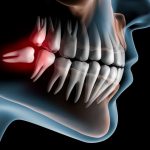Why Are My Teeth Turning Black? Common Causes and Effective Remedies
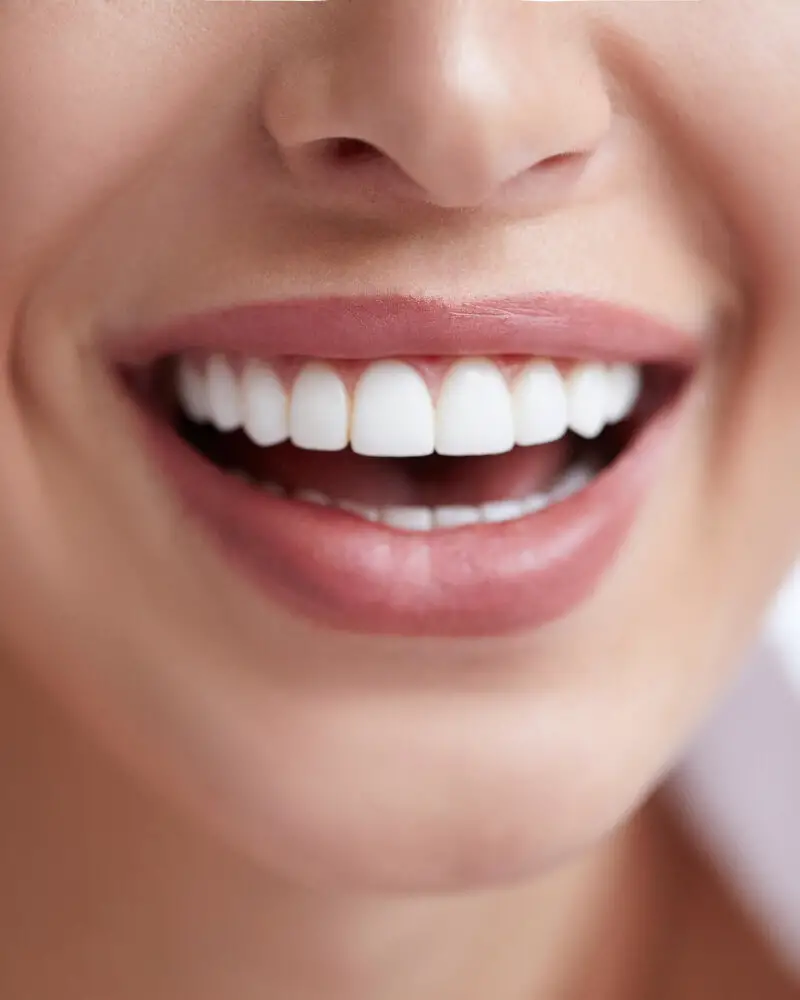
As one of the most noticeable features of our facial appearance, teeth play a significant role in our daily lives. Aside from chewing food, speaking, and smiling, they also contribute to our self-esteem and confidence. However, when our teeth start to turn black, it can cause distress and anxiety. Black teeth are not only unappealing but also indicate underlying dental problems that need immediate attention. Fortunately, in most cases, this condition is preventable and treatable with proper oral hygiene and dental care. There are several reasons why teeth turn black, and understanding these causes is essential in preventing and treating the condition. Poor dental hygiene, smoking, and consuming certain foods and drinks can all contribute to black teeth. Additionally, underlying medical conditions, such as tooth decay, gum disease, and medication side effects, can also lead to this issue. In this article, we will explore the common causes of black teeth and provide effective remedies to restore your pearly whites’ natural color and shine.
Maintaining proper dental hygiene is crucial to ensure healthy teeth and gums. Neglecting dental hygiene can result in the build-up of plaque and harmful bacteria, which can lead to tooth decay, gum disease, and even tooth loss. Poor dental hygiene can also cause bad breath and discoloration of the teeth. Brushing twice a day, flossing regularly, and visiting the dentist for routine check-ups and cleanings can help prevent these issues and maintain good oral health. Additionally, a healthy diet and avoiding tobacco products can also contribute to maintaining a healthy mouth. Taking care of your teeth and gums not only ensures a healthy smile but also promotes overall health and well-being.
The article, \Why Are My Teeth Turning Black: Common Causes and Effective Remedies,\ explores the various reasons for the discoloration of teeth and provides insightful remedies to counter the condition. The piece highlights the detrimental effects of poor oral hygiene, the consumption of certain foods and drinks, and smoking on the appearance of teeth, which can lead to black or brown discoloration. The article is informative and engaging, with a range of effective remedies to help prevent and treat teeth discoloration, such as regular brushing, flossing, and professional teeth cleaning. The author emphasizes the importance of maintaining good oral hygiene and seeking professional help if necessary to restore the natural color and health of teeth.
Common Causes of Black Teeth
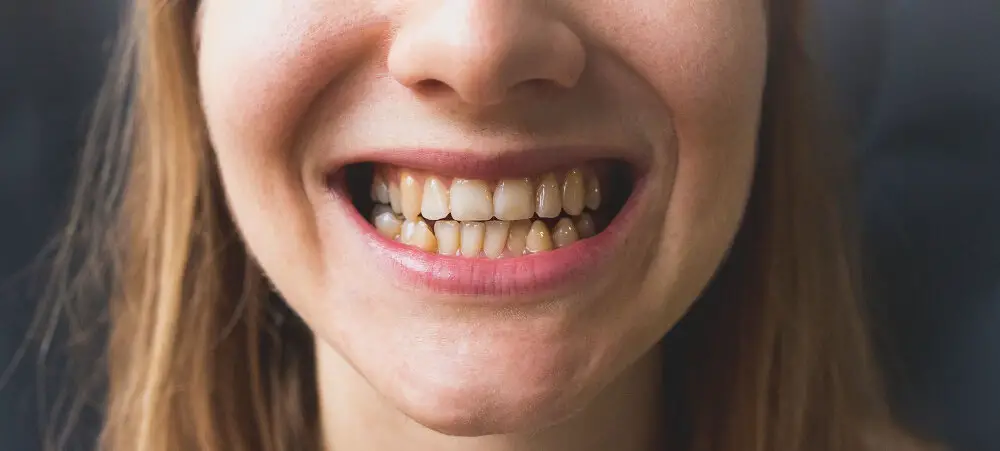
Black teeth are a common dental issue that can cause significant concern for those affected. While teeth are naturally white, certain factors can cause discoloration, making them appear black. Poor oral hygiene is one of the leading causes of black teeth. When you do not brush or floss your teeth regularly, plaque and bacteria can build up, leading to staining and discoloration. Additionally, consuming foods and drinks that are high in sugar, such as soda, candy, and other processed foods, can contribute to the development of black teeth. These substances can cause the enamel on your teeth to weaken, making it more susceptible to staining and discoloration. Another common cause of black teeth is smoking. Cigarettes contain tar and nicotine, which can cause significant staining and discoloration of your teeth. Over time, the tar will build up, causing your teeth to turn black or brown. Additionally, certain medications, such as tetracycline and doxycycline, can cause black teeth as a side effect. If you notice that your teeth are turning black, it is essential to see your dentist as soon as possible to determine the cause and receive appropriate treatment.
Poor oral hygiene is one of the most common causes of black teeth. Failure to brush and floss regularly allows plaque and tartar to accumulate on the teeth, leading to the development of cavities and gum disease. Additionally, consuming sugary and acidic foods and drinks can further erode the enamel, causing the teeth to turn black. It is important to maintain good oral hygiene habits, including brushing twice daily, flossing regularly, and visiting the dentist for routine cleanings and check-ups. By doing so, one can prevent the development of black teeth and maintain a healthy, bright smile.
One of the most common reasons for blackening teeth is the consumption of certain foods and drinks. Dark-colored beverages such as coffee, tea, and red wine are notorious for staining teeth due to their high pigment content. Additionally, acidic drinks like soda and fruit juices can erode the enamel on teeth, making them more susceptible to discoloration. Foods that are heavily pigmented, such as berries, beets, and soy sauce, can also leave stains on teeth. It’s important to be mindful of what you eat and drink, and to maintain good oral hygiene habits such as brushing and flossing regularly, to prevent unsightly tooth discoloration.
Smoking and tobacco use are detrimental to both oral and overall health. The chemicals in tobacco products can stain teeth and cause them to turn yellow or black over time. Smoking can also lead to gum disease and increase the risk of oral cancer. It’s essential to quit smoking and avoid tobacco use to maintain optimal oral health. Moreover, practicing good oral hygiene, such as brushing and flossing regularly, can help prevent further staining and damage to teeth. Additionally, professional teeth whitening treatments and dental cleanings can help remove tobacco stains and restore a brighter, healthier smile.
Medications play a crucial role in treating several health conditions, but some of them can cause tooth discoloration as a side effect. Tetracycline antibiotics, for instance, are known to cause yellow or brown stains on teeth, especially in children under eight years of age. Antihistamines, antipsychotics, and high blood pressure medications can also cause tooth discoloration. To prevent this, it is essential to inform your dentist of any medications you are taking or have taken in the past. They can recommend preventive measures or suggest alternative medication options that do not cause tooth discoloration. In severe cases, professional teeth whitening can help remove stubborn stains caused by medications.
There are several health conditions that can cause blackening of teeth. One of the most common causes is poor oral hygiene, which can lead to the buildup of plaque and tartar on teeth, causing them to turn yellow or brown. Certain medications, such as antibiotics, can also cause blackening of teeth as a side effect. Additionally, consuming dark-colored foods and beverages, such as coffee, tea, and red wine, can stain teeth over time. In rare cases, blackening of teeth may also be a symptom of a more serious health condition, such as decay, trauma, or a fungal infection. To maintain healthy teeth and prevent blackening, it is important to maintain good oral hygiene habits and visit a dentist regularly for cleanings and checkups.
Effective Remedies for Black Teeth

Black teeth can be a cause of embarrassment and discomfort for many people. It is often caused by poor dental hygiene, but there are other reasons for black teeth such as smoking, excessive consumption of tea, coffee, or cola, and certain medications. Thankfully, there are several effective remedies for black teeth that can help restore the natural color of your teeth. The first step is to maintain good dental hygiene by brushing and flossing regularly. A good dental routine can prevent the buildup of plaque and tartar, which can cause black teeth. You can also try using a teeth whitening toothpaste or a natural toothpaste made with baking soda, which can help remove surface stains from your teeth. Another effective remedy for black teeth is to have regular dental cleanings. A professional dental cleaning can remove stubborn stains that cannot be removed with regular brushing. You can also try using a teeth whitening kit at home, which can help remove deeper stains that cannot be removed with regular dental cleanings. It is important to note that teeth whitening kits should be used carefully and only as directed to avoid damaging your teeth or gums. Finally, if your black teeth are caused by smoking or excessive consumption of tea, coffee, or cola, it may be time to reduce or eliminate these habits. Not only will this help improve the color of your teeth, but it can also improve your overall health.
Brushing and flossing regularly are crucial steps to maintain good oral hygiene and prevent teeth from turning black. Plaque buildup, which is a sticky film of bacteria that forms on teeth, can cause tooth discoloration and eventually lead to decay. Brushing twice daily with fluoride toothpaste helps to remove plaque from the surfaces of teeth. Flossing helps to clean the spaces in between teeth where a toothbrush cannot reach, preventing the buildup of plaque and bacteria. By regularly brushing and flossing, you can keep your teeth healthy, white, and avoid the need for more invasive dental treatments in the future.
Using whitening toothpaste is one of the most common ways to remove surface stains and prevent teeth from turning black. These toothpastes contain special chemicals and abrasives that help to remove stains caused by food, drinks, and tobacco products. While they may not be effective for deep stains or discoloration caused by genetics or medication, regular use of whitening toothpaste can help to keep teeth looking bright and healthy. It’s important to note that overuse of these toothpastes can damage tooth enamel, so it’s best to follow the recommended usage instructions and speak to a dentist if you have any concerns.
Professional teeth whitening treatments are one of the most effective remedies for black or discolored teeth caused by various factors such as poor oral hygiene, smoking, medication, and aging. These treatments are typically performed by a dentist or dental hygienist using advanced technology such as laser or light therapy to remove stains and brighten teeth. Professional teeth whitening treatments provide quick, long-lasting results and are safe, unlike many over-the-counter whitening products that can cause damage to the teeth and gums. With proper follow-up care, including regular brushing, flossing, and dental check-ups, professional teeth whitening can help individuals achieve a brighter, healthier smile.
Home remedies like baking soda and hydrogen peroxide have been found to be effective in treating discolored teeth. Baking soda is a mild abrasive that helps remove surface stains on teeth, while hydrogen peroxide acts as a bleaching agent that can lighten the color of teeth. When used together, these two ingredients can create a powerful teeth whitening solution. However, it is important to use these remedies in moderation and with caution, as excessive use can cause damage to the enamel of the teeth. It is always advisable to consult a dentist before attempting any home remedies to ensure that they are safe and effective for your particular dental needs.
Although smoking and tobacco use are notoriously difficult habits to break, quitting can have a significant positive impact on your oral health. Not only does tobacco stain teeth and cause bad breath, but it also increases the risk of gum disease and oral cancer. Quitting smoking and tobacco use can drastically improve the appearance of your teeth and the health of your gums, as well as decrease your risk of oral cancer. While it may be challenging to quit, there are many resources available to help, including nicotine replacement therapy, support groups, and counseling. By quitting smoking and tobacco use, you can take a major step towards improving your overall health and well-being.
Changing medications or treating underlying health conditions can help prevent teeth from turning black. Certain medications, such as antibiotics like tetracycline, can cause teeth to darken when taken during childhood when the teeth are still developing. If this is the case, switching to a different medication may be suggested. Additionally, underlying health conditions such as gum disease or tooth decay can also lead to black teeth. Treating these conditions with proper dental care, such as regular brushing and flossing, can help prevent further discoloration. In severe cases, a dentist may recommend professional whitening or other cosmetic procedures to restore the natural color of the teeth.
Prevention of Black Teeth
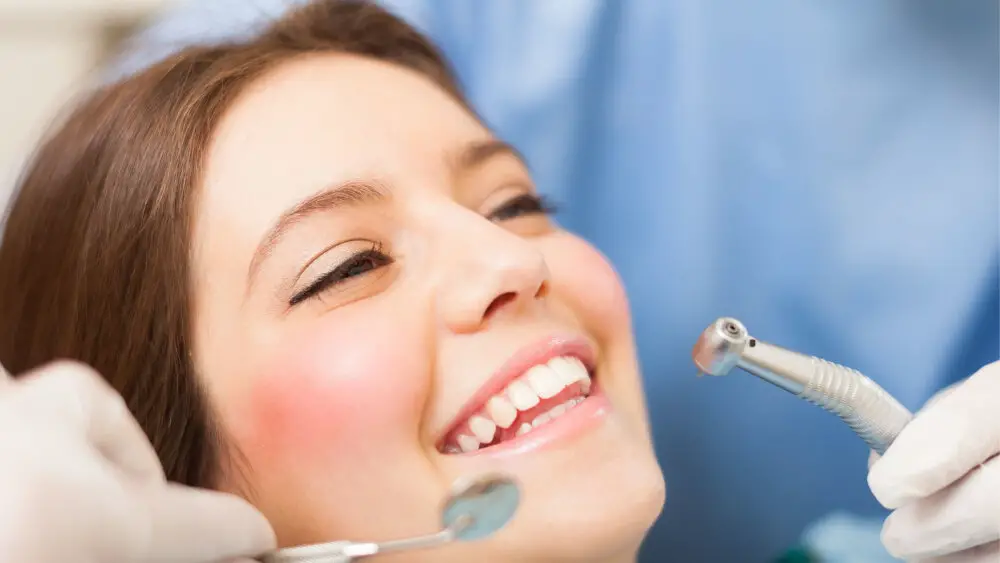
Prevention of black teeth is essential to maintain good oral hygiene. Brushing twice a day with fluoride toothpaste and flossing daily can help prevent the formation of plaque, which can cause teeth to turn black. Additionally, avoiding sugary and acidic foods and drinks can also help prevent black teeth. Regular dental checkups and cleanings are also vital to ensure that any dental issues are detected early and treated promptly. It is also recommended to quit smoking and chewing tobacco, as they can cause tooth discoloration and other oral health problems. In some cases, black teeth may be caused by underlying medical conditions or medications. It is crucial to inform your dentist of any medical conditions or medications you are taking that may be contributing to the discoloration of your teeth. Your dentist may be able to recommend alternative treatments that do not cause black teeth, or may suggest ways to prevent tooth discoloration while taking medications or managing medical conditions. Overall, taking preventative measures and maintaining good oral hygiene practices can help keep your teeth healthy and free from black discoloration.
Maintaining good oral hygiene is crucial to prevent teeth from turning black. Brushing teeth twice a day with fluoride toothpaste and flossing daily can help remove plaque and food particles that can cause decay and discoloration. Using an antiseptic mouthwash can also help kill bacteria that can lead to black spots or stains on teeth. It is important to limit sugary and acidic foods and drinks and to avoid smoking, which can also stain teeth. Regular dental check-ups and professional cleanings can help detect and prevent any potential dental problems before they worsen and cause blackening of teeth. By practicing good oral hygiene habits, you can not only keep your teeth healthy and white, but also maintain an overall healthy mouth and body.
Limiting foods and drinks that stain teeth is an effective way to prevent blackening of teeth. Dark-colored beverages like coffee, tea, and red wine contain chromogens that adhere to the enamel of teeth, causing them to turn dark. Acidic drinks like soda and fruit juices also contribute to teeth discoloration by eroding the enamel, making it easier for stains to stick. Foods like soy sauce, tomato sauce, and berries also contain chromogens that stain teeth. To prevent teeth from turning black, it is recommended to consume these items in moderation and rinse the mouth with water after consuming them. Additionally, incorporating foods that promote saliva production like apples and celery can help wash away food particles and reduce staining.
Regular dental checkups and cleanings are crucial for maintaining good oral health and preventing teeth from turning black. Neglecting dental appointments can lead to a buildup of plaque and tartar, which can cause tooth decay, gum disease, and discoloration. During a dental cleaning, a hygienist removes the plaque and tartar, leaving your teeth looking brighter and healthier. Additionally, a dentist can identify any potential issues early on, such as cavities or gum disease, and provide treatment before they worsen. By prioritizing regular dental checkups and cleanings, you can keep your teeth white and healthy and avoid the need for more invasive treatments down the line.
Black teeth are a common dental problem that can cause discomfort and embarrassment. There are several reasons why teeth can turn black, including poor oral hygiene, tobacco use, certain medications, and excessive consumption of certain foods and beverages. The good news is that there are effective remedies to reverse black teeth, such as regular brushing and flossing, quitting smoking, avoiding staining foods and drinks, and undergoing professional teeth whitening treatments. In severe cases where the discoloration is caused by decay or infection, more invasive procedures such as root canal therapy or tooth extraction may be necessary. It’s essential to maintain good oral hygiene and seek professional help if you notice any discoloration or other dental issues.
Maintaining good dental hygiene is vital for keeping your teeth healthy and white. Brushing and flossing your teeth twice a day, using mouthwash, and avoiding sugary foods can help prevent the development of tooth decay, gum disease, and other oral health problems. However, if you notice that your teeth are turning black, it is crucial to seek professional help from a dentist. A dental professional can diagnose the underlying cause of your black teeth and provide effective remedies to restore your teeth’ color and health. Neglecting dental hygiene and avoiding dental visits can lead to severe oral health problems that may require more aggressive and costly treatments in the future. Therefore, taking care of your teeth and seeking professional help when needed can prevent potential complications and ensure a healthy and beautiful smile.
Conclusion
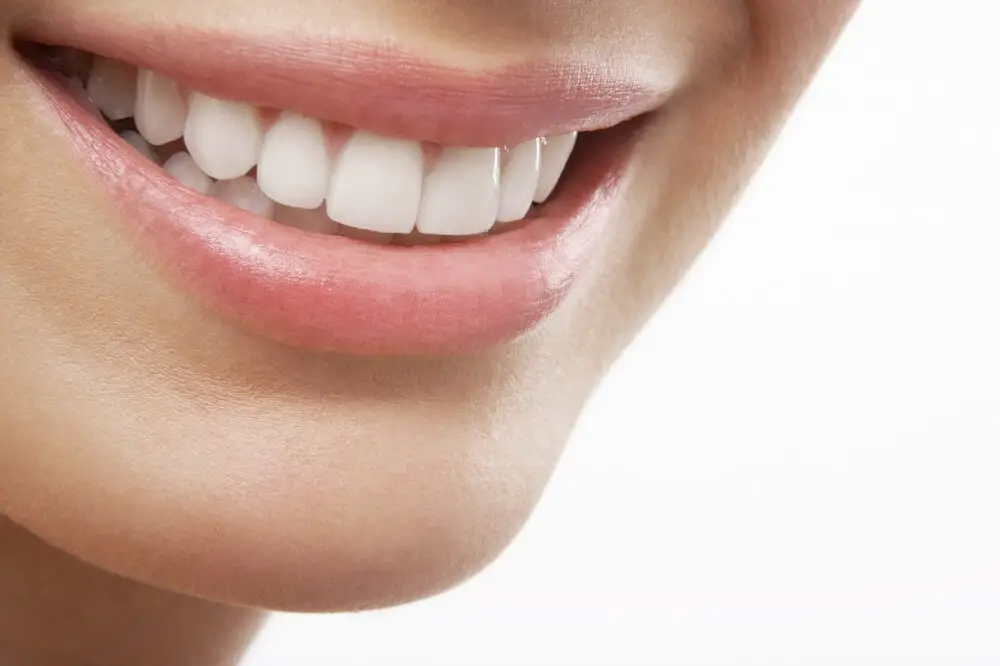
In conclusion, there are several common causes of black teeth, ranging from poor oral hygiene to certain medical conditions and lifestyle factors. However, with the right remedies and treatment, it is possible to restore your teeth to a healthy, white state. Regular brushing and flossing, avoiding tobacco and excessive consumption of staining foods and drinks, and seeking dental care as needed can all help prevent and address black teeth. If you are concerned about the color of your teeth, it is important to consult with a dental professional to determine the underlying cause and develop an effective treatment plan. By taking proactive steps to improve your oral health, you can enjoy a brighter, healthier smile for years to come.
